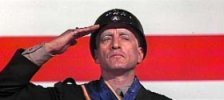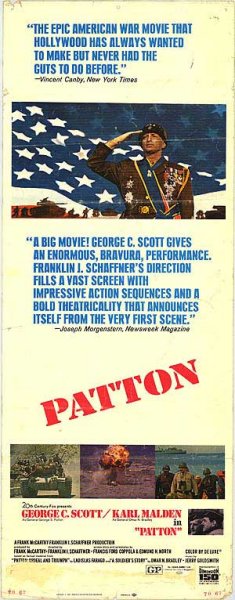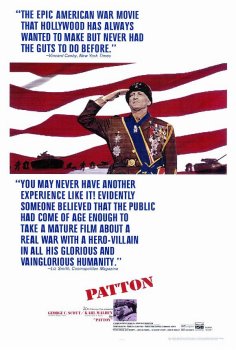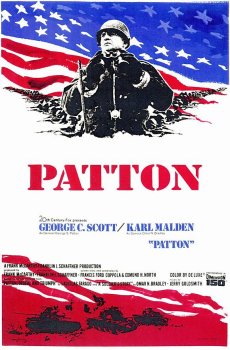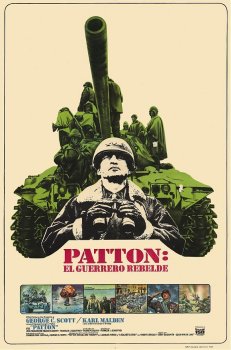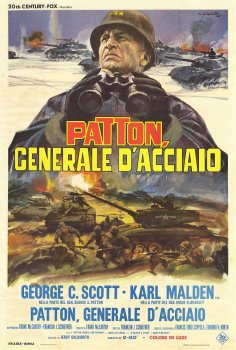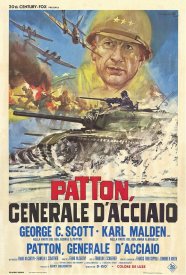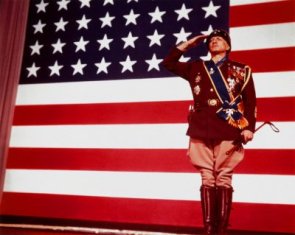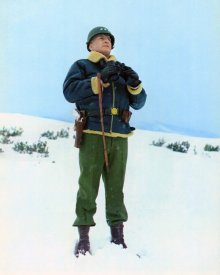| |

Get All The Greatest Big Band & Jazz Music On 10 Different CD's From The
Roaring 20's To The Swinging Jazz 30's And To The Post World War II Era...

General George S. Patton addresses an unseen audience of American troops to raise their morale, focusing in particular on
the value placed on winning by American society. Following the humiliating American defeat at the Battle of the Kasserine Pass
in 1943, Patton is placed in charge of the American II Corps in North Africa. Upon his arrival, he immediately starts enforcing
discipline among his troops. Patton is then summoned to a meeting with Air Marshal Coningham of the Royal Air Force, where he
claims that the American defeat was caused by lack of air cover. Coningham promises Patton that he will see no more German
aircraft – but seconds later the compound is strafed by Luftwaffe planes. Patton then defeats a German attack at the Battle
of El Guettar; his aide Captain Jenson is killed in the battle, and is replaced by Lieutenant Colonel Codman. Patton is bitterly
disappointed to learn that Erwin Rommel, commander of the German-Italian Panzer Army, was on medical leave, but Codman reassures
him that: "If you've defeated Rommel's plan, you've defeated Rommel."
After success in the North Africa campaign, Patton and Bernard Montgomery come up with competing plans for the Allied invasion
of Sicily. Patton's proposal to land his Seventh Army in the northwest of the island with Montgomery in the southeast (therefore
potentially trapping the German and Italian forces in a pincer movement) initially impresses their superior General Alexander,
but General Eisenhower rejects it in favor of Montgomery's more cautious plan, which places Patton's army in the southeast,
covering Montgomery's flank. While the landing is successful, the Allied forces become bogged down, causing Patton to defy
orders and advance northwest to Palermo, and then to the port of Messina in the northeast, narrowly beating Montgomery to the
prize, although several thousand German and Italian troops are able to flee the island. Patton insists that his feud with
Montgomery is due to the latter's determination to be the "war hero," and to deny the Americans any chance of glory. However,
his actions do not sit well with his subordinates Bradley and Lucian Truscott.
While on a visit to a field hospital, Patton notices a shell-shocked soldier crying. Calling him a coward, Patton slaps the
soldier and even threatens to shoot him, before demanding his immediate return to the front line. Patton is relieved of
command and, by order of Eisenhower, forced to apologize to the soldier, others present, and to his entire command. As a
result, he is also sidelined during the D-Day landings in 1944, being placed in command of the decoy phantom First United
States Army Group in southeast England. German General Alfred Jodl is convinced that Patton will lead the invasion of Europe.
After begging his former subordinate Bradley for a command before the war ends, Patton is placed under him in command of the
Third Army and performs brilliantly by rapidly advancing through France, but his tanks are brought to a standstill when they
run out of fuel – the supplies being allocated to Montgomery's bold Operation Market Garden, much to his fury. Later, during
the Battle of the Bulge, Patton brilliantly relieves the town of Bastogne and then smashes through the Siegfried Line and into
Germany.
At a war drive in Knutsford, England, General Patton remarks that the United States and the United Kingdom would dominate the
post-war world, viewed as an insult to the Soviet Union. After Germany capitulates, Patton directly insults a Russian general
at a dinner; the Russian insults Patton right back, much to Patton's amusement. Patton then makes an offhand remark comparing
the Nazi Party to American political parties. Ultimately, Patton's outspokenness loses him his command once again, though he
is kept on to see to the rebuilding of Germany, where a runaway oxcart narrowly misses him. Finally, Patton is seen walking
Willie, his bull terrier, across the German countryside. Patton's voice is heard relating that a returning hero of ancient Rome
was honored with a "triumph," a victory parade in which "a slave stood behind the conqueror, holding a golden crown, and
whispering in his ear a warning: that all glory ... is fleeting."
|
|
Starring ... |
George C. Scott, Karl Malden, Michael Bates, Karl Michael Vogler
|
Director: Franklin J. Schaffner
Producers: Frank Caffey & Frank McCarthy
Released - April 2, 1970
Length - 170 minutes
Music Composer: Jerry Goldsmith
Movie Distributed by 20th Century Fox
|

To search and purchase anything related with the movie listed on this page
Patton
,then simply just click on this link here.
Thank you...
Click on VHS tape
for enlarged view

CLICK HERE
to buy this VHS tape
|
|
MOVIE THEME SONGS
Patton Theme - MIDI
Patton
'Main Title' - MP3 ... 970K
Patton
'Attack Theme' - MP3 ... 964K
Patton Speech
'by George C. Scott' - MP3 ... 1.68M

|
Click CD for enlarged view
or Download as Album Art
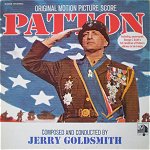
CLICK HERE to buy this CD
|
|

|
Click on DVD tape
for enlarged view
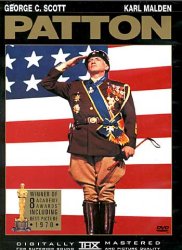
CLICK HERE to Purchase DVD
|
Click on DVD tape
for enlarged view
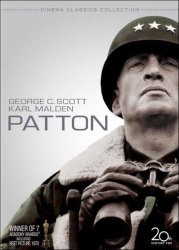
CLICK HERE to Purchase DVD
|
Click on DVD tape
for enlarged view
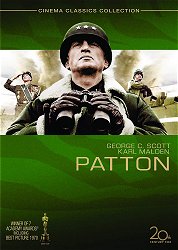
CLICK HERE to Purchase DVD
|
Click on Blu-Ray
for enlarged view
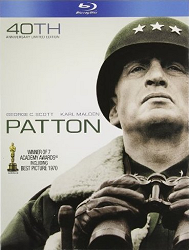
CLICK HERE to Buy Blu-Ray
|
Click on Blu-Ray
for enlarged view
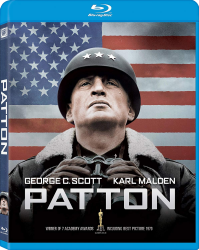
CLICK HERE to Buy Blu-Ray
|
Click on Blu-Ray
for enlarged view
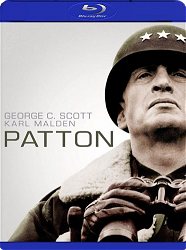
CLICK HERE to Buy Blu-Ray
|
Click on Blu-Ray
for enlarged view
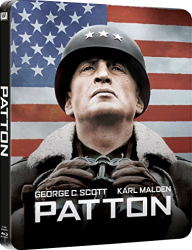
CLICK HERE to Buy Blu-Ray
|



 |
View The Movie Image Library
(Movie Stills) -
Patton
|
OR |
Click Here To View

|

Return to the "World War II" Index Page
Get your favorite "MILITARY & WAR" videos in the BLU-RAY, DVD, VHS format or the
CD soundtracks which can be purchased through
AMAZON.com .
 Thank you very much... Thank you very much...


Please Help Support This Site By Purchasing A Couple Of CD's

Come Visit The Historic Complete Victory At Sea Online Homepage
|


















